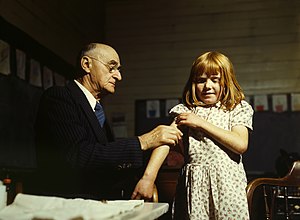 Mathew Webb left a sales job in menswear for a sales job in pharmaceutical drugs 10 years ago and suddenly found himself surrounded by money. As a sales representative for a major drug company, he was expected to entertain doctors two or three nights a week. There were seats in elaborate sporting events in private stadium suites at major games and dinners at five-star restaurants.
Mathew Webb left a sales job in menswear for a sales job in pharmaceutical drugs 10 years ago and suddenly found himself surrounded by money. As a sales representative for a major drug company, he was expected to entertain doctors two or three nights a week. There were seats in elaborate sporting events in private stadium suites at major games and dinners at five-star restaurants.
At that point, openly using gifts and money to influence doctors was considered standard practice. But much of that came to a crashing halt after July 2002. That's when the pharmaceutical industry's trade group, known as PhRMA, published its Code on Interactions with Healthcare Professionals — voluntary guidelines that substantially changed the game for reps like Webb.
How To Win Doctors And Influence Prescriptions
State regulators recommend new health insurance rules
 State insurance regulators on Thursday unanimously recommended controversial rules that govern how much insurers must spend on patients' medical care, and they chose not to adopt any of several amendments that consumer advocates had feared would gut key provisions.
State insurance regulators on Thursday unanimously recommended controversial rules that govern how much insurers must spend on patients' medical care, and they chose not to adopt any of several amendments that consumer advocates had feared would gut key provisions.
The rules, which involve an important part of the new health care overhaul law, now go to Health and Human Services Secretary Kathleen Sebelius, who has final say. Leaders of the National Association of Insurance Commissioners voted after months of meetings and debate that involved industry and consumer representatives. The recommended rules center on the "medical loss ratio," which is how much insurers spend on medical care versus administration and profit.
Federal agents round up mental health operators in $200 million Medicare fraud case
 Federal agents arrested several South Florida healthcare operators early Thursday in one of the nation's biggest Medicare fraud cases, charging them with scheming to fleece $200 million from the taxpayer-funded program by billing for bogus mental health services.
Federal agents arrested several South Florida healthcare operators early Thursday in one of the nation's biggest Medicare fraud cases, charging them with scheming to fleece $200 million from the taxpayer-funded program by billing for bogus mental health services.
Lawrence S. Duran, 48, of North Miami, and his company, American Therapeutic Corp., were charged along with other employees in a conspiracy indictment. The Miami-based company's chief executive officer, Marianella Valera, 39, was also among the defendants named in the indictment.
Examination of all possible causes for America's worsening life expectancy eliminates everything but modern health care as the cause.
 Ultimately, health care seems to be the culprit in Americans' increasingly shorter lifespans. The authors investigated the impact of health insurance on mortality rates, and found that there is very little. They stated that insurance "coverage has large effects on use of health care but only small effects on mortality, which are concentrated in low-income groups."
Ultimately, health care seems to be the culprit in Americans' increasingly shorter lifespans. The authors investigated the impact of health insurance on mortality rates, and found that there is very little. They stated that insurance "coverage has large effects on use of health care but only small effects on mortality, which are concentrated in low-income groups."
They go on to note that only a very small difference in life expectancy can be found as a result of access to medical insurance. It should also be pointed out that these studies are looking for such a connection, so their inability to find one should be taken as highly significant.
Insurers Test New Cancer Pay Systems
 Several large health insurers, including UnitedHealthcare and Aetna, are focusing on one of the country’s most costly diseases: cancer. The insurers have begun tightening oversight of the care provided to patients with many different types of cancer, hoping to lower expenses by experimenting with new ways to pay specialists.
Several large health insurers, including UnitedHealthcare and Aetna, are focusing on one of the country’s most costly diseases: cancer. The insurers have begun tightening oversight of the care provided to patients with many different types of cancer, hoping to lower expenses by experimenting with new ways to pay specialists.
UnitedHealthcare plans to announce on Wednesday a one-year project with five oncology practices, offering doctors an additional fee. The new fee is meant to encourage doctors to follow standard treatments rather than opting too often for individualized and unproven courses of therapy, which can include the most expensive drug combinations.
US slips to 49th in life expectancy: study
 "As of September 23, 2010, the United States ranked forty-ninth for both male and female life expectancy combined," concludes the study, conducted by Columbia University health policy professors Peter A. Muennig and Sherry A. Glied, which will appear in the November edition of the influential peer-reviewed journal.
"As of September 23, 2010, the United States ranked forty-ninth for both male and female life expectancy combined," concludes the study, conducted by Columbia University health policy professors Peter A. Muennig and Sherry A. Glied, which will appear in the November edition of the influential peer-reviewed journal.
The noteworthy decline is highlighted by the fact that in 1999, the World Health Organization ranked the US as 24th in the world in the same category, life expectancy.
Why McDonald's Happy Meal hamburgers won't decompose - the real story behind the story
 It's always entertaining when the mainstream media "discovers" something they think is new even though the natural health community has been talking about for years. The New York Times, for example, recently ran a story entitled When Drugs Cause Problems They Are Supposed to Prevent (http://www.nytimes.com/2010/10/17/h...). We've been covering the same topic for years, reporting on how chemotherapy causes cancer, osteoporosis drugs cause bone fractures and antidepressant drugs cause suicidal behavior.
It's always entertaining when the mainstream media "discovers" something they think is new even though the natural health community has been talking about for years. The New York Times, for example, recently ran a story entitled When Drugs Cause Problems They Are Supposed to Prevent (http://www.nytimes.com/2010/10/17/h...). We've been covering the same topic for years, reporting on how chemotherapy causes cancer, osteoporosis drugs cause bone fractures and antidepressant drugs cause suicidal behavior.
The latest "new" discovery by the mainstream media is that McDonald's Happy Meal hamburgers and fries won't decompose, even if you leave them out for six months. This story has been picked up by CNN, the Washington Post and many other MSM outlets which appear startled that junk food from fast food chains won't decompose.
More Articles...
Page 135 of 233

 Health Glance
Health Glance






























